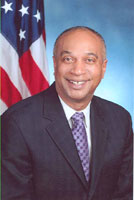New York Online Poker Bill Dead for 2017
There will be no more movement on online poker legislation in New York this year as the state Assembly failed to take up a bill before the end of the legislative session this week. Senate Bill 3898, a bill which would have legalized and regulated online poker statewide, had already passed the state Senate by a 54-8 vote.
The bill had also breezed through the Assembly Racing, Wagering and Gaming Committee by a 10-1 vote, so there seemed to be sufficient positive momentum. But instead of heading to an Assembly vote and then moving on to the Governor’s desk, the bill died for the second year in a row.
Last year, interestingly, it was the online poker champion of the Assembly, Assemblyman J. Gary Pretlow, who prevented legislation from moving further. In an interview with FIOS1 News’s Andrew Whitman in February, Pretlow explained that though he has been the sponsor of online poker legislation, he ended up having some “issues” with the game to which he needed sufficient solutions before he could sign off on anything.
His two biggest concerns were whether or not online poker could be a “fair” – that is, that cheating could be curtailed – and whether or not geolocation services could be accurate.

New York Assemblyman J. Gary Pretlow
Unlike many politicians who just shut their ears and rely on their incorrect preconceived notions of how they think online gambling is supposed to be, Pretlow worked to actually learn more about online gaming. He told Whitman that he traveled to New Jersey – where online gambling is legal and regulated – and spoke with the state’s Attorney General. Pretlow was shown how geolocation services worked and came away impressed at how geolocation services can pinpoint where a player is.
Pretlow also returned to New York “satisfied” that online poker sites could sufficiently detect and prevent cheating. Clearly, not all funny business can be stopped, but what Pretlow saw made him feel comfortable.
He told Whitman that things should go well when and if a bill is presented to the New York Assembly.
“When I do sign off on something,” he said, “my colleagues feel that it is a good deal and they don’t question why I made a certain decision. They know that if that decision was made, it’s for good reason. So I don’t really see there’s going to be much opposition to moving this along.”
Apparently, though, there was opposition, enough to stop online poker dead in its tracks. About a week ago, Pretlow told Online Poker Report, “I believe they have some issues that may not be resolved by the middle of next week. I’ve heard they have some constitutional issues and disagreements over the penalties. Some people say we don’t have strong enough penalties for bad actor, while some people say the penalties are too strong.”
The bad actor language in the New York bill came as a bit of a surprise, added just this month. Here is the language that was added, discussing how a potential operator would be considered ineligible:
(f) Whether the applicant:
(i) has at any time, either directly, or through another person whom it owned, in whole or in significant part, or controlled:
(A) knowingly and willfully accepted or made available wagers on interactive gaming (including poker) from persons located in the United States after December thirty-first, two thousand six, unless such wager were affirmatively authorized by law of the United States or of each state in which persons making such wagers were located; or
(B) knowingly facilitated or otherwise provided services with respect to interactive gaming (including poker) involving persons located in the United States for a person described in clause (A) of this subparagraph and acted with knowledge of the fact that such wagers or interactive gaming involved persons located in the United States; or
(ii) has purchased or acquired, directly or indirectly, in whole or in significant part, a person described in subparagraph (i) of this paragraph or will use that person or a covered asset in connection with interactive gaming licensed pursuant to this article.
Like the bad actor clauses in other states’ legislation, this obviously targets PokerStars, the would-be most threatening competitor to New York’s casinos.
So, it stinks that nothing is going to happen with online poker in New York this year, but the good news is that because it’s a non-election year, the legislation will not have to start over. Instead, it will be where it is now, having passed the committee in the Assembly. Thus, all that’s left is for it to get to a full Assembly vote, though obviously there are some discussion to be had to hash out any issues lawmakers have with the bill.



















COMMENTS